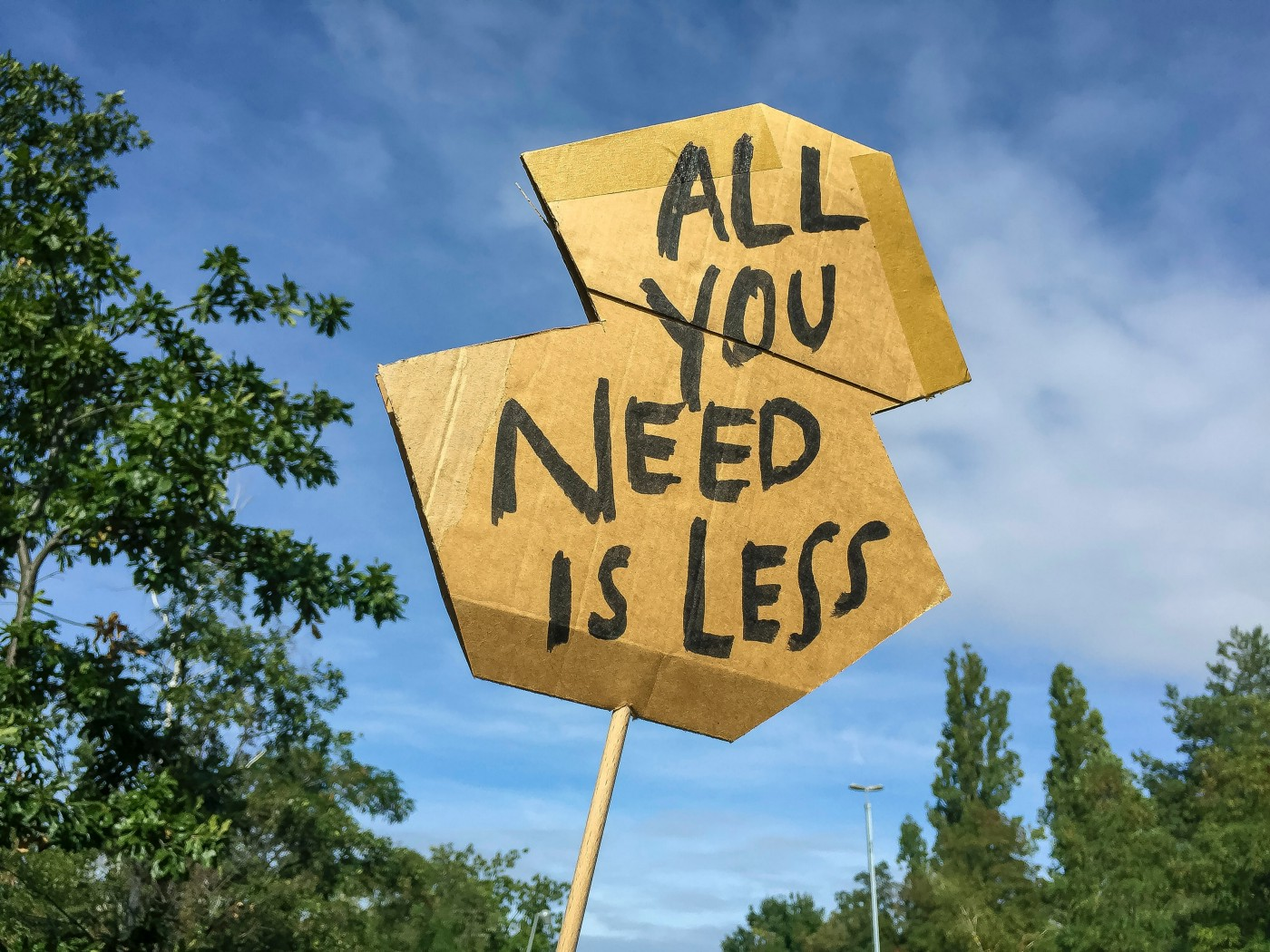· 4 min read
The biggest barrier to effective climate action today isn’t denialism, or even apathy, but our propensity to believe convenient fantasies. No fantasy is more convenient to those who have thrived under fossil capitalism than the belief that we can achieve net zero by 2050 without having to give anything up. We are promised a green industrial revolution that will create jobs and wealth — and bring emissions down at a rate consistent with keeping global warming below 2°C. But with every passing day, that vision looks less and less plausible.

Net zero scenarios that align with the below 2°C warming target agreed at Paris more than 6 years ago all rely on one of two herculean assumptions: either a massive, unprecedented reduction in global energy demand, or a massive, unprecedented rise in “negative emissions”.
Environmental campaigners have rightly been sceptical of scenarios that rely heavily on the latter assumption to balance the carbon books, but there has been less attention paid to the alternative “low energy demand” scenarios and what they imply for societies.
In the IPCC’s 2018 special report on 1.5°C, the only scenario presented that did not rely on substantial carbon dioxide removal (beyond a bit of tree planting), imagined instead a 32% reduction in global energy demand by 2050 (against a 2010 baseline). Since 2010, global energy demand has in fact increased by more than 15%: from where we are now, energy demand would need to fall by more than 40% in the next 28 years, back to where it was in the late 1990s. Yet no government has anything approaching a credible plan for how to achieve such dramatic cuts in energy demand.
What’s more, given that more than half a billion people globally still do not have access to electricity, if this is to be a just transition, developed countries are going to have to reduce their energy demand by significantly more than 40% between now and 2050.
So how might they do that? There are some obvious things to prioritise — like improving the energy efficiency of buildings and reducing food waste — but these are only a start. If we are serious about net zero by 2050, then we must also get serious about changing our economic model to one that does not rely on rising material and energy consumption.
This is not a call to don hairshirts. A society that consumes less stuff and energy isn’t necessarily a backward step in terms of human happiness — in fact, quite the opposite. Beyond a certain level of per capita consumption — a level that developed countries have long since surpassed — the equivalence between consumption and wellbeing breaks down. In these countries, pursuing “degrowth” can mean liberation from “bullshit jobs”, leaving individuals more time for learning, leisure and love. A less energy- and material-intensive economy is likely to be one that revolves around care and creativity, rather than the induced dissatisfaction of consumerism.
Degrowth is also not an anti-innovation agenda. On the contrary, we should welcome disruptive innovation in sectors like the automotive industry, where the combination of autonomous electric vehicles (AEVs) and transport-as-a-service (TaaS) business models have the potential to make car ownership, at least in cities, largely obsolete. In one scenario outlined by the think tank RethinkX, the combination of AEVs and TaaS in the US could lead to 70% fewer cars and trucks being manufactured every year and an 80% reduction in energy demand for personal mobility.
So disruptive innovation is critical — but not sufficient. In our current, growth-oriented economic system, when the quantity of energy, materials and money required to meet one societal need is reduced, what happens is that we find other “productive” uses for the freed-up resources. That’s not a paradoxical outcome: it’s just what a market economy does.
Ultimately then, the challenge is political. The only kind of degrowth a liberal market economy is capable of is the painful kind that involves some people not being able to heat their homes or put food on the table for their families. If we’re to downsize our economy in a way that doesn’t impose serious hardship on the most vulnerable members of society, we need a politics capable of managing not only a finite carbon budget, but finite material and energy budgets, equitably.
That means acknowledging that not every revenue-generating activity is of equal value to society. It is self-evident that a civilised society must be able to produce food and homes in sufficient quantities to feed and house all its citizens. It is surely also self-evident that a society without private jets, fast fashion or bitcoin mining can still be a civilised one.
This article is also published on the author's blog. Energy Voices is a democratic space presenting the thoughts and opinions of leading Energy & Sustainability writers, their opinions do not necessarily represent those of illuminem.






